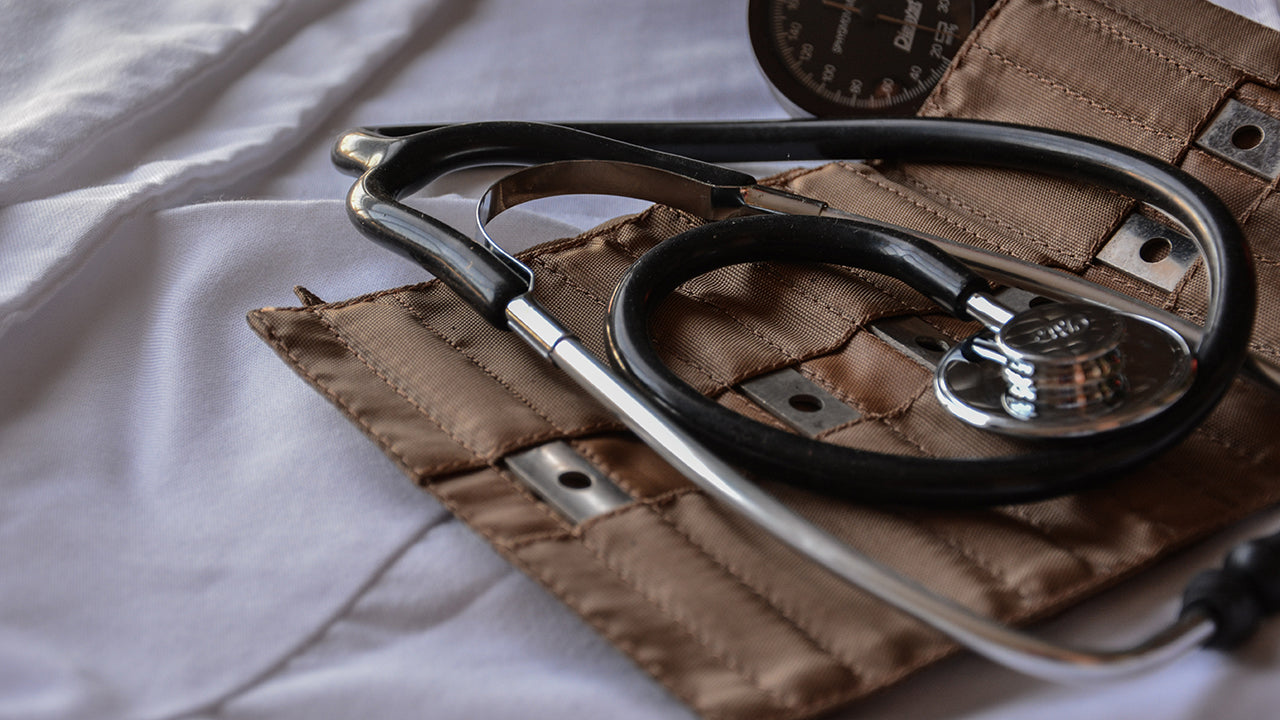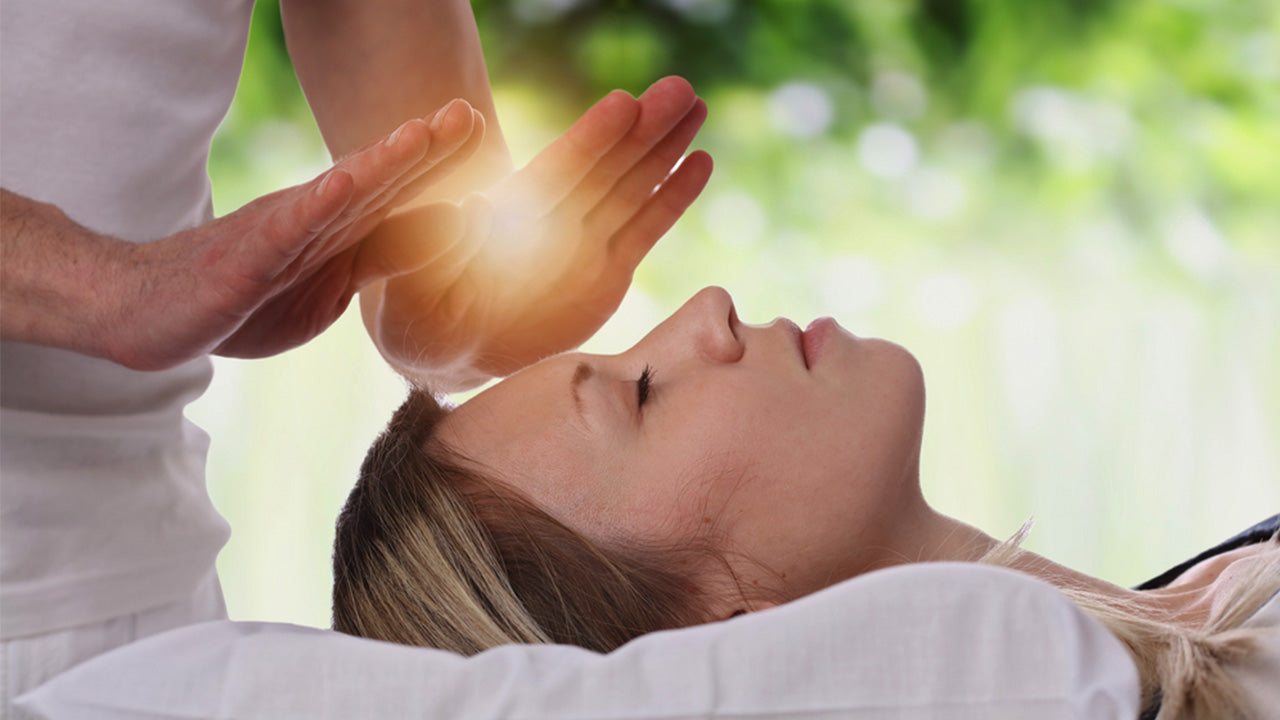The High Blood Pressure Heart Disease Connection
 By: by Amino Science
By: by Amino Science

Nicknamed the silent killer due to its hidden symptoms, high blood pressure (HBP or hypertension) occurs when blood pressure is consistently too high. According to the American Heart Association (AHA), approximately half of all Americans have high blood pressure, and many are unaware they have it.
With every beat of your heart, blood pumps through arteries, veins, and capillaries. Two forces create the pressure we refer to as blood pressure: systolic pressure as blood travels out into the arteries, and diastolic pressure as the heart rests between heartbeats. You've likely seen these two types of pressure measured in a blood pressure reading.
- The top number is your systolic pressure, and the normal range is less than 120 mm Hg.
- The bottom number is your diastolic blood pressure, with less than 80 mm Hg being the targeted range.
What is the high blood pressure heart disease connection? High blood pressure makes the heart and blood vessels work harder and less efficiently, damaging the tissues inside the arteries over time. LDL cholesterol (the bad kind) forms plaque along the artery walls and narrows the arteries, raising blood pressure. This can ultimately lead to heart disease and heart attack, among other health problems such as kidney disease, sexual dysfunction, and dementia.
What Causes High Blood Pressure?
There are two types of high blood pressure: primary hypertension, which does not have a discernable cause and tends to develop gradually over many years, and secondary hypertension, which tends to appear suddenly and create higher blood pressure compared to primary hypertension. Various lifestyles, conditions, and medications can lead to secondary hypertension. Let’s take a look at the primary risk factors.
Symptoms of High Blood Pressure
While hypertension symptoms typically remain quiet, if your blood pressure is extremely elevated, you may experience the following side effects:
- Excruciating headache
- Lethargy
- Confusion
- Vision impairment
- Shortness of breath
- Irregular heartbeat
- Blood in the urine
- Pounding in your neck, ears, or chest
Does High Blood Pressure Cause Heart Disease?
High blood pressure can damage your body for years without showing symptoms, and if it is left untreated, it can lead to disability or a heart attack. Half of the people with uncontrolled high blood pressure die of cardiovascular disease related to poor blood flow and another third die of stroke.
High blood pressure can damage your arteries and heart in the long run. High blood pressure increases the pressure of blood flowing through your arteries, and uncontrolled high blood pressure can damage your heart in many different ways.
Damaged Arteries
High blood pressure can damage the inner lining of your arteries. The fat that you eat enters your bloodstream and collects in the damaged arteries. With time, artery walls become less elastic, and they limit blood flow throughout your body.
Aneurysm
The pressure of blood flowing through a weak artery can form a bulge in the arteries, which is called an aneurysm. Aneurysms are more common in the body’s largest artery (aorta), and they can cause life-threatening internal bleeding.
Coronary Artery Disease
Coronary artery disease narrows the arteries that supply blood to the heart muscle and prevents blood from flowing freely through the arteries. This can lead to chest pain, a heart attack, or irregular heart rhythms (arrhythmias).
Enlarged Left Heart
High blood pressure makes your heart work harder to pump blood, causing the thickening of the left ventricle. The ventricle is not able to pump blood to your body anymore, and the risk of heart attack, heart failure, and sudden cardiac death may increase.
Heart Failure and Attack
In the long term, high blood pressure can weaken your heart muscle, and eventually, your heart simply fails and struggles to perform vital tasks. This can lead to a heart attack.

How to Treat High Blood Pressure
If you have high blood pressure, a healthy lifestyle can play a key role in treating this condition so you can avoid prescription medications.
Lose Weight
Losing weight is one of the most effective ways to lower blood pressure. Just 10 pounds of weight loss can make a marked difference. Focus on your waistline—carrying too much weight around the middle can increase your risk of high blood pressure.
Eat Healthy
A diet rich in whole grains, fruits, vegetables, and amino acids is ideal. This eating plan is known as the Dietary Approaches to Stop Hypertension (DASH) diet. Avoid saturated fats and trans fats, and reduce your salt consumption. Even a small reduction in sodium can lower blood pressure by 2 to 8 mm Hg. Reading food labels is an excellent habit. Eat fewer processed foods, and do not add extra salt to your meals—just 1 level teaspoon of salt has 2,300 mg of sodium. Replace salt with herbs and spices.
Click here for 16 foods that help lower blood pressure!
Exercise Regularly
Regular exercise helps prevent high blood pressure, especially for those with prehypertension (systolic 120-129 mm Hg and diastolic less than 80 mm Hg) who are teetering on full-blown hypertension. Consistent physical activity can significantly lower your blood pressure. It's as simple as walking, jogging, cycling, and swimming and engaging in a strength training program.
It's also a good idea to take a heart-health supplement like Life, an essential amino acid formula that protects the heart by increasing blood flow and lowering cholesterol and blood pressure.
Reduce Alcohol
If you are 65 years old and older, avoid drinking more than one drink a day. If you are younger, drinking more than two drinks a day might have consequences later in life. And indulging in alcohol can raise your blood pressure by several points and stymie the effectiveness of blood pressure medications.
Avoid Smoking
Smoking can affect your body in many different ways, one of which is to raise your blood pressure, and not just when you're smoking but for several minutes after. Quitting smoking helps your blood pressure return to normal.
Reduce Caffeine
The jury is still out on how significantly caffeine impacts blood pressure levels, but you can test how you react to caffeine to know how it affects your blood pressure. First check your blood pressure to get a base reading. Then, test your blood pressure numbers within 30 minutes of drinking a caffeinated beverage. If your blood pressure increases 5 to 10 mm Hg, you may be sensitive to the effects of caffeine.
Reduce Stress
Chronic stress most assuredly raises high blood pressure. Mindfulness and breathing techniques can help you cope with stress, but introspective work to know your stress triggers is crucial. Practice gratitude and learn to accept the things that you cannot change.
Monitor Your Blood Pressure
Blood pressure monitors are available widely and without a prescription, and they can help you keep your blood pressure in check. Follow the tips mentioned above, and alert your doctor if you experience health complications. If your blood pressure is under control, you might need to visit your doctor only every 6 to 12 months, but if your blood pressure is not controlled, your visits might become more frequent.
Get Support
The support of your family and friends is key to your health. They may notice health-related issues that you do not see, be an advocate for your health and medical treatment, and even jump on board a new exercise program that can help keep your blood pressure readings in the normal range.

Up to 25% off Amino
Shop NowTAGS: conditions
Join the Community
Comments (0)
Most Craveable Recipes




 833-264-6620
833-264-6620




















